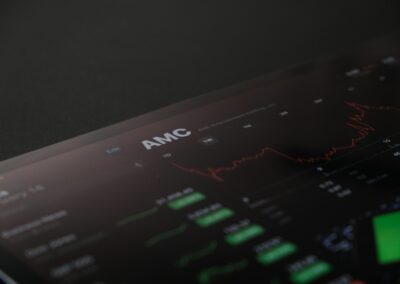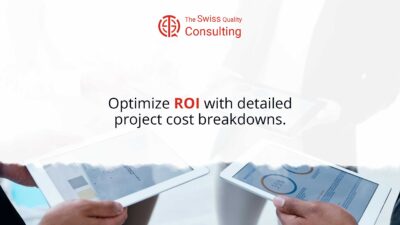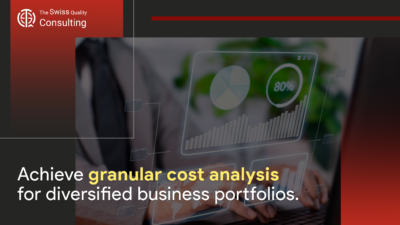The Strategic Advantage of Cost-Tracking in Business Management
In today’s competitive business environment, maximizing profitability is not just a goal but a necessity for survival and growth. For business executives, mid-level managers, and entrepreneurs, the effective use of cost-tracking tools represents a pivotal strategy in achieving this objective. This article provides an overview of how cost-tracking tools can be leveraged for business success, emphasizing their role in change management, executive coaching, and project management.
The Essence of Cost-Tracking in Business
Cost-tracking is more than just monitoring expenses. It’s a comprehensive approach that involves analyzing, understanding, and optimizing the spendings of a business. By effectively tracking costs, businesses can identify wasteful expenditures, optimize resource allocation, and enhance financial decision-making. This is where cost-tracking tools come into play, offering a systematic way to record, analyze, and interpret financial data.
Integrating Cost-Tracking with Executive Coaching
Executive coaching services often underscore the importance of financial literacy and strategic spending. Coaches work with leaders to develop the skills necessary for effective financial management, which includes the adept use of cost-tracking tools. This training ensures that leaders are not only aware of the financial health of their organization but are also capable of using these insights to drive business success.
Generative Artificial Intelligence in Cost Management
The financial landscape is undergoing a seismic shift. The advent of Generative Artificial Intelligence (AI) has transcended mere automation, injecting a powerhouse of predictive capability into cost-tracking and management. Forget static spreadsheets and reactive budgeting—AI algorithms are now propelling businesses into a proactive era of financial stewardship.
Here’s how AI is revolutionizing cost control:
Predict the Future of Your Finances: Say goodbye to crystal balls and hello to accurate, data-driven spending forecasts. AI analyzes historical data and identifies trends, enabling businesses to pre-empt financial peaks and valleys with remarkable precision. Imagine anticipating inventory fluctuations, pinpointing wasteful spending patterns before they materialize, and optimizing budget allocation based on future market movements.
Unearth Hidden Cost-Saving Gems: Buried within mountains of data lies a treasure trove of untapped cost-reduction opportunities. AI algorithms sift through the financial haystack, flagging anomalies, identifying inefficiencies, and suggesting optimization strategies. This could mean discovering redundant subscriptions, streamlining purchasing processes, or even negotiating better supplier contracts—all thanks to the AI’s relentless pursuit of financial efficiency.
Real-Time Analytics at Your Fingertips: Ditch the clunky, time-consuming reports and embrace the dynamism of real-time insights. AI delivers a live feed of financial data, allowing businesses to monitor cash flow, analyze spending in real-time, and make instant adjustments based on the pulse of their financial ecosystem. This empowers businesses to be nimble and responsive to market fluctuations, seizing opportunities and safeguarding against unforeseen risks.
Integrating AI with existing cost-tracking tools transcends mere automation. It ushers in a paradigm shift, transforming businesses from passive observers of their finances into active architects of their financial future. Generative AI grants the power to predict, optimize, and adapt, propelling businesses towards sustainable financial health and unwavering profitability.
Beyond the immediate benefits, Generative AI opens a door to a world of financial possibilities:
Personalized Cost Management: Imagine AI-powered tools that tailor financial recommendations to individual departments or projects, enabling hyper-focused cost control aligned with specific goals.
Predictive Maintenance: Foresee equipment failures and optimize maintenance schedules, eliminating costly downtime and extending asset lifespan.
Dynamic Risk Management: Anticipate financial risks and proactively implement mitigation strategies, safeguarding your business from unforeseen financial headwinds.
Effective Communication and Team Involvement
Effective communication plays a crucial role in the successful implementation of cost-tracking practices. It is essential for leaders to ensure that their teams understand the importance of cost management and are trained in using these tools. Regular updates and transparent discussions about financial goals and performance can foster a culture of fiscal responsibility and collective effort towards profitability.
Project Management and Strategic Planning
In project management, cost-tracking tools are indispensable. They provide project managers with detailed insights into project finances, helping them to stay within budget and timeline. Strategic planning, coupled with effective cost management, ensures that projects contribute positively to the overall profitability of the organization.
Conclusion: A Path to Sustained Profitability Cost-Tracking Tools
Cost-tracking tools are not just about cutting costs; they are about smart spending and strategic financial management. Businesses that effectively implement these tools can enjoy enhanced control over their finances, leading to sustained profitability and growth. For business leaders, embracing these tools is a step towards stronger financial acumen and strategic leadership.
#CostTracking #ProfitMaximization #FinancialManagement #BusinessSuccess #ExecutiveCoaching #ProjectManagement












